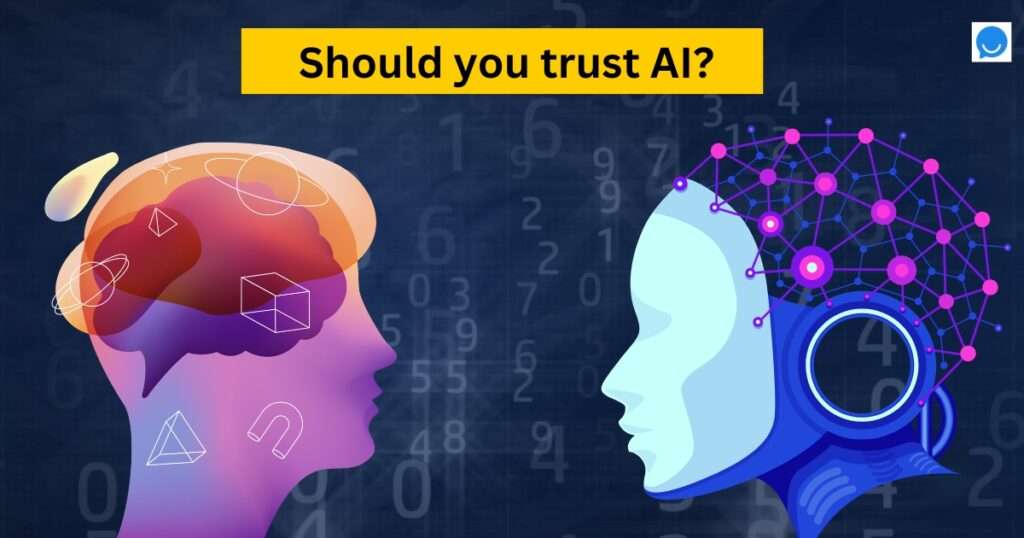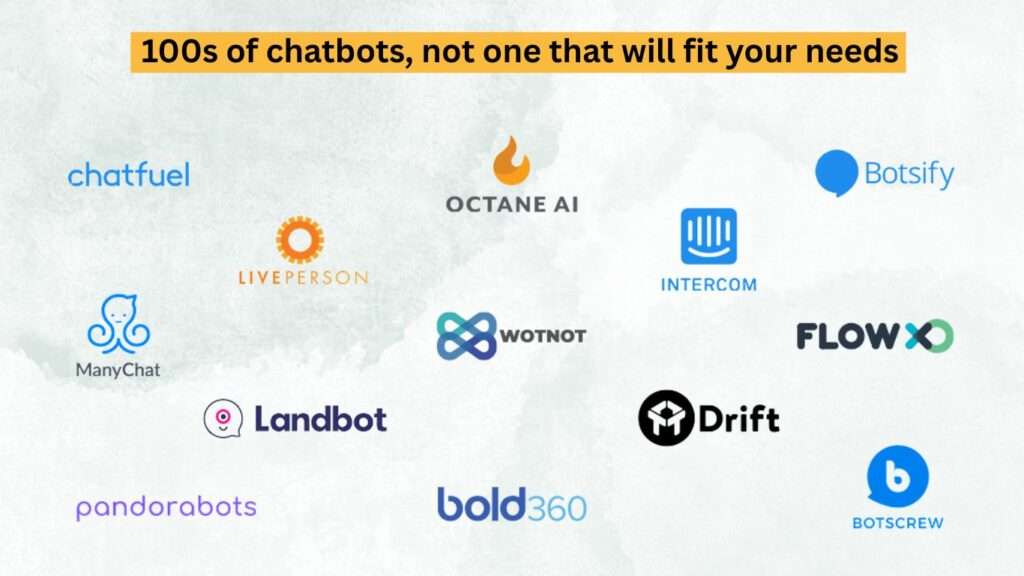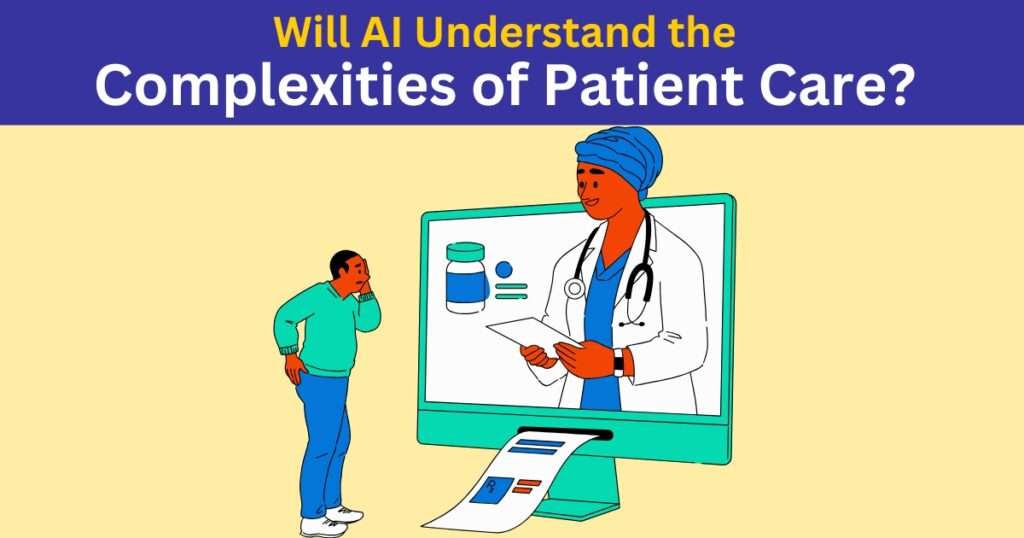Discover how healthcare chatbots enhance patient experiences, streamline workflows, and drive digital transformation in medicine.
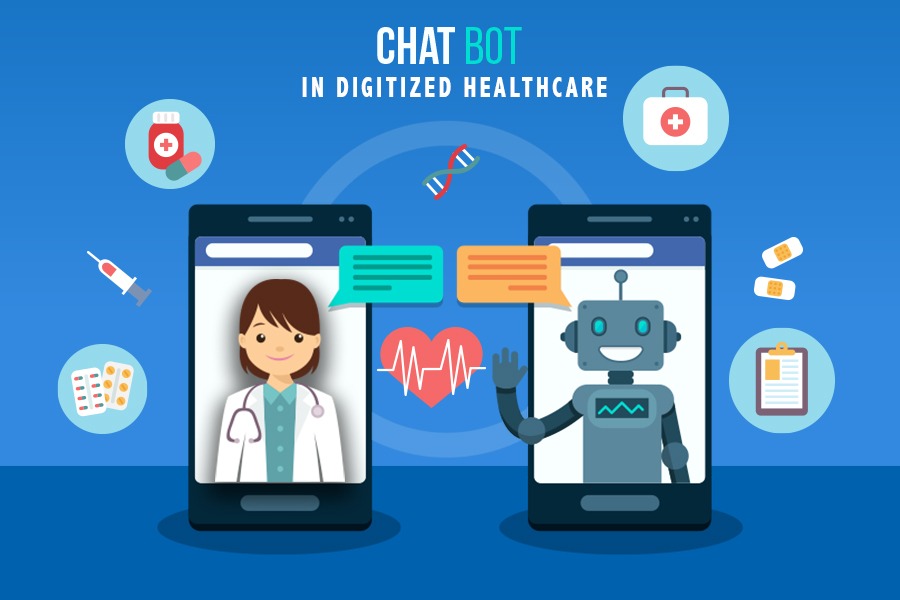
In the rapidly evolving landscape of healthcare, technological advancements are driving transformative changes, and one of the standout innovations making waves is the integration of healthcare chatbots. These intelligent virtual assistants are not just reshaping patient interactions; they’re becoming integral players in optimizing healthcare processes. In this comprehensive blog post, we will delve into the world of healthcare chatbots, exploring what they are, the benefits they bring to the industry, and envisioning the exciting future they hold.
What are Chatbots in the Healthcare Industry?
In the realm of healthcare, chatbots are virtual conversational agents designed to interact with users in a natural language format. These digital assistants utilize artificial intelligence (AI) and natural language processing (NLP) to understand and respond to user queries. In essence, healthcare chatbots aim to enhance patient engagement, streamline administrative tasks, and provide timely, accurate information.
Benefits of Chatbots in Healthcare:
- Enhanced Patient Engagement:
Healthcare chatbots act as round-the-clock companions, offering support and information to patients at any time. This constant accessibility fosters patient engagement, allowing individuals to seek guidance, schedule appointments, or receive health-related information promptly.
2. Efficient Appointment Scheduling:
Streamlining administrative tasks is a forte of healthcare chatbots. Patients can easily schedule appointments, receive reminders, and even cancel or reschedule using the chatbot interface, reducing no-show rates and optimizing the healthcare provider’s schedule.
3. Quick and Accurate Information Dissemination:
With the vast amount of health information available, chatbots become valuable tools for delivering accurate and timely information. Patients can inquire about symptoms, medications, or general health advice, receiving instant responses that help in making informed decisions about their well-being.
4. Post-Discharge Follow-ups:
Post-discharge care is crucial for a patient’s recovery, and chatbots excel in providing follow-up support. These virtual assistants can check in with patients, monitor their progress, and offer guidance on post-treatment care, ensuring a seamless transition from the hospital to home.
5. Health Monitoring and Reminders:
For patients managing chronic conditions, healthcare chatbots can play a vital role in monitoring health metrics. They can send reminders for medication schedules, track symptoms, and provide personalized advice based on the individual’s health data.
6. Cost-Efficient Customer Support:
Healthcare chatbots offer a cost-effective solution for providing customer support. They can handle a multitude of inquiries simultaneously, freeing up staff to focus on more complex tasks. This efficiency contributes to cost savings for healthcare providers.
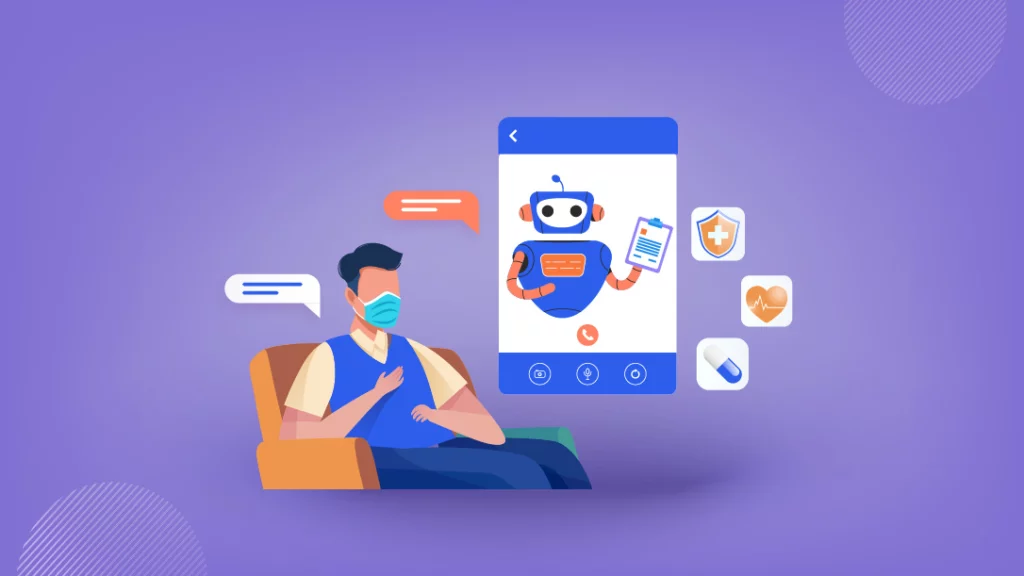
Top 6 Chatbot Use Cases in Healthcare:
- Symptom Checker and Triage:
Healthcare chatbots can assess patient symptoms and provide initial triage, offering recommendations on whether immediate medical attention is necessary or if self-care measures suffice.
2. Medication Management:
Ensuring medication adherence is crucial for managing chronic conditions. Chatbots can assist in medication management by sending reminders, providing dosage information, and addressing medication-related queries.
3. Appointment Scheduling and Reminders:
Simplifying the appointment process, chatbots enable patients to schedule, reschedule, or cancel appointments. They also send timely reminders, reducing no-show rates and optimizing healthcare providers’ schedules.
4. Mental Health Support:
Chatbots play a role in mental health support by offering a non-judgmental space for individuals to express their feelings. They can provide coping strategies, suggest mindfulness exercises, and offer resources for seeking professional help.
5. Health Education and Information:
Healthcare chatbots contribute to health literacy by providing information on medical conditions, treatment options, and preventive measures. This empowers patients to make informed decisions about their health.
6. Remote Patient Monitoring:
With the rise of telehealth, chatbots are becoming instrumental in remote patient monitoring. They can collect and analyze data from wearable devices, providing real-time insights into a patient’s health status.
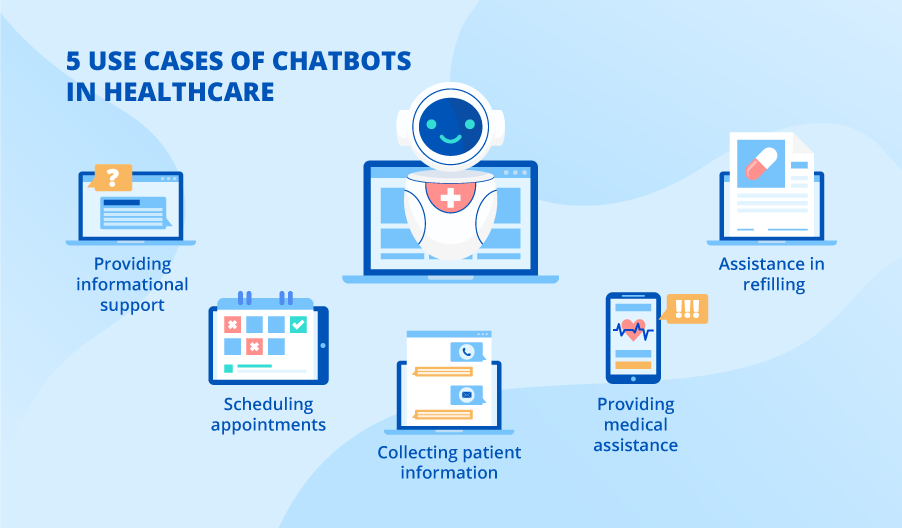
Future of Chatbots in Healthcare:
The trajectory of healthcare chatbots is poised for remarkable growth, with several key trends shaping their future:
- Integration with Wearable Technology: Chatbots will increasingly integrate with wearable devices to monitor health metrics, providing a comprehensive and real-time overview of a patient’s well-being.
- Advancements in Natural Language Processing: Ongoing developments in natural language processing will enhance the conversational abilities of chatbots, enabling more nuanced and context-aware interactions with users.
- Personalized Treatment Plans: Future healthcare chatbots will leverage machine learning algorithms to analyze individual health data and provide personalized treatment plans, tailoring recommendations to each patient’s unique needs.
- Expanding Mental Health Support: Given the growing focus on mental health, chatbots will play an expanded role in providing mental health support, and offering therapeutic interventions and resources to individuals in need.
- Collaboration with Electronic Health Records (EHR): Chatbots will integrate seamlessly with electronic health records, ensuring that healthcare providers have access to comprehensive patient information and facilitating a more holistic approach to care.
- Enhanced Diagnostic Capabilities: Advancements in diagnostic algorithms will empower healthcare chatbots to provide more accurate assessments of symptoms, aiding in early detection and intervention.
Conclusion:
As we witness the transformative impact of healthcare chatbots, it becomes evident that their integration is not merely a technological trend but a paradigm shift in how healthcare is accessed and delivered. The benefits they bring—enhanced patient engagement, streamlined processes, and improved access to information—are pivotal in shaping a future where healthcare is not only efficient but also more patient-centric.
The journey of healthcare chatbots is still unfolding, and as they continue to evolve, their role in shaping the future of healthcare promises to be revolutionary. In embracing this digital evolution, healthcare providers are not just adopting technology; they are ushering in a new era of healthcare that is smarter, more accessible, and inherently focused on improving patient outcomes.
For more such amazing content follow us here!


